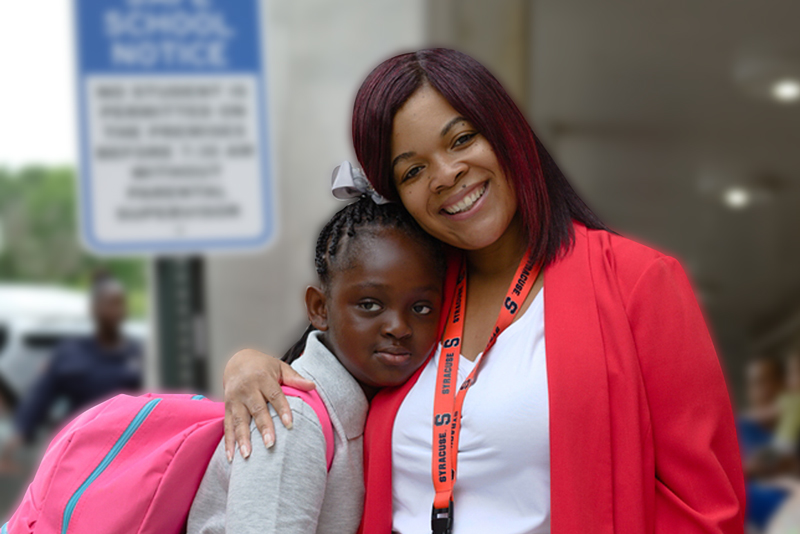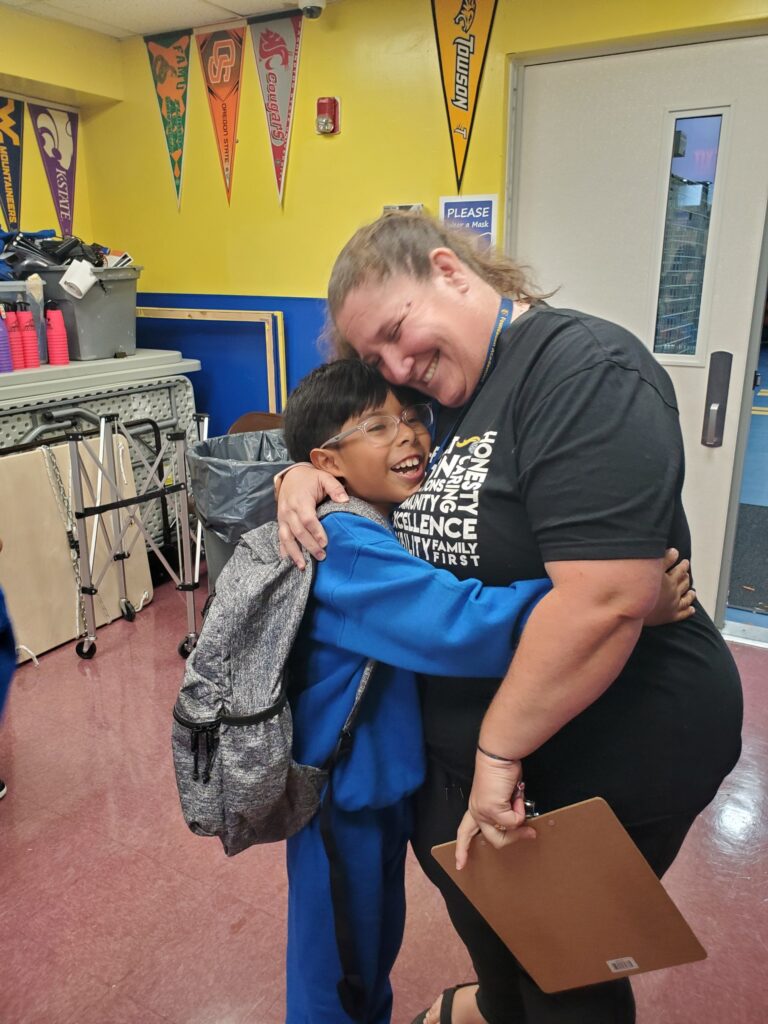
GOLDEN: Backlash Against the DOE’s Prioritizing Schools Over Parent Rights Has NJ Dems on the Defensive
September 12, 2023
GASWIRTH: When School Employee Absences Increase Sharply, Will Learning Be Further Compromised?
September 13, 2023Q&A: COVID and All, How Is This Trenton Public Charter School Beating the Odds?
Foundation Academies Charter School in Trenton, now in its fifteenth year of operation, is a public charter school that serves 10% of all Trenton public school students with far better outcomes than district schools. It has maintained this success during these wrought times through astute attention to education’s “long COVID” and its impact on teacher and student mental health. Last week I had the chance to chat with Foundation Academies’ Chief Executive Officer Sheria McRae and Chief Academic Officer Natasia Cooper, both New Jersey natives. Here is the interview, lightly edited.
Hi, Sheria and Natasia. What was your path to educational leadership positions in one of New Jersey’s most-troubled cities?
McRae: I was born and raised in Trenton and then went to Howard University, an HBCU [Historically Black Colleges and Universities]. One summer while I was at Howard I had an internship in Washington D.C. and was struck by the stark racial disparities in student learning. After graduation I joined Teach for America and asked to be placed in Newark—that was the closest I could get to Trenton! In 2010 there was an opening at Foundations Academies [FA] for a middle school English teacher and I was thrilled to go back home, especially to a school that was so aligned with my own values. Over time, leadership opportunities arose for me—I saw the chance to work with adults who would have a huge impact on our scholars. As FA grew, I grew too and became the middle school principal, then Chief Academic Officer, and then the CEO.
Cooper: I had a slightly different path. I grew up in Willingboro and got my B.S. in social work from Syracuse University and an M.A. in teaching from Johns Hopkins. I also came through Teach for America: starting in 2003 I taught fifth and sixth grade in Baltimore. Then I was assistant principal at two public charter schools—Mastery and KIPP—in Philadelphia. My teaching and administrative duties really showed me how the socio-economic disparities in student lives —as well as adult expectations for them—affect where they end up. At FA we’ve been able to create a culture that sets high expectations for students, teachers, and families.
How do you do that?
McRae: It’s really about building a community that offers all sorts of resources and support. If you’re not doing your homework—and we believe in homework, it’s not busy work but important practice and mastery—can we arrange for you to stay after school with a tutor? If parents aren’t attending Back-to-School nights, how can we intervene? If your family doesn’t have enough food, what resources can we provide? If our teachers are feeling overwhelmed, what support can we offer? We’re a community first and we’re all working for the success of every child. That’s our “foundation.”
COVID hit many students hard, particularly those from low-income families. How is FA addressing all the educational and emotional needs of students?
Cooper: FA first came back in hybrid form in January 2021 but most of our students stayed home. Sheria and I started in July 2022 and spent a bit of time digging into what our families and staff were—-still are!–experiencing and what resources they need. What is the degree of learning loss? Who do we need to hire? We really worked hard at figuring that out.
We were very aware of the need for mental health support–this city was experiencing a crisis of mental health— so we hired four social workers, a behavioral specialist, and other staff as part of a Student Success Team in order to address social-emotional learning to help us understand the behaviors we were seeing. Outside therapists and specialists had long waiting lists and the city was strapped for resources. We found counselors for our scholars and did some of it ourselves. We spoke to parents and connected them with support services.

We had scholars who needed to be screened for suicidal ideation, really an overwhelming number. That was so alarming. Our teachers were dealing with anxiety too. So many people had become accustomed to being by themselves. There was so much anxiety, probably far more than in affluent communities where students can jump right back in. That wasn’t possible at FA.
What did you do about learning loss?
McRae: We are still dealing with learning loss and just getting back to high achievement levels. Pre-pandemic, 92% of our students reached proficiency levels on standardized tests but they need more time and more resources. We use interim assessments—iReady and MAP—and from those assessments we know our students need more tutors. They’re hard to find so we’re doing the best we can with our own staff. That’s a major inequity between affluent districts and cities like Trenton: you can only expect everyone to perform if you provide sufficient support. It’s such a hardship in urban communities.
And, of course, we have the advantage over district schools with our longer school calendar: FA has a longer school day – 7:30 am – 3:45 pm – and is in session 190 days a year, ten days longer than traditional schools.
Yet even this past spring almost everyone graduating from FA got into colleges and a dozen were the first in the family to ever do so. Plus, the Class of 2023 got offered more than $9 million in awards and scholarships. What’s your strategy?
Cooper: Yes, since we opened our high school in 2016, every student has gotten into college. This year we have a student with disabilities whom we’re still working with. FA has an intensive college and career program, which starts in ninth grade. Our freshmen do a lot of work on identity and leadership, plus they read Steven Covey’s “Seven Habits of Successful Teens.” In tenth grade they start taking college and career preparation courses and shadow professionals in different fields.. Once a year they shadow teachers too. They also use YouScience, which helps them connect their aptitudes to careers. In eleventh grade they create portfolios of colleges they want to attend, and everyone applies to nine, plus a “reach” school.
What happens if they don’t want to go to college but enter a trade instead?
Cooper: We also have a pathway for trades and students can create a vocational plan. They all do college prep and vo-tech is a choice. In twelfth grade we work a lot on teaching them how to maximize financial aid and facilitate college tours, mostly built around regions and HBCU’s.
You’re slated for an expansion, right? Do you have more applicants than seats?
McRae: We educate 1,100 students and we have 1,100 students on wait lists, up from 800 last year. We’ve been approved to add 156 students in K-2 and we’re working on buying a new property and creating more space in our current two buildings. Our five-year plan is to double our size to 2,200 students. Our children should be able to attend state-of-the-art schools so they can live lives of purpose. They should have access to engineering labs, art studios, and the resources to fulfill their passions.

What drives the demand?
McRae: Well, it’s certainly not from advertising—we have no budget for that! It’s all word-of-mouth. In our lottery the only applicants who get preference are siblings—even our teachers who live in Trenton don’t have an advantage.. Also, recently Trenton has had an influx of immigrants and those families are eager for their children to attend high-performing schools.
I don’t believe in paying for quality education. Parents should be able to move into any neighborhood and have high-quality choices.
You’ve both spoken about the impact of the pandemic but your students are doing far better than at Trenton district schools. For instance, according to the state database, 12% of ninth graders at Trenton Central High [Ninth Grade Academy] passed the state reading test and at FA 41% did, only 8 points below the state average. Do you have a secret?
Cooper: No secrets! Only that we’re part of the Trenton community and so our families trust us—we have a survey we do twice a year and our parent satisfaction level is extremely high. Ninety-six percent of our families say they would recommend FA to friends. That’s what makes it work: mutual trust. What we’re doing here aligns with what families want and what our scholars need.





